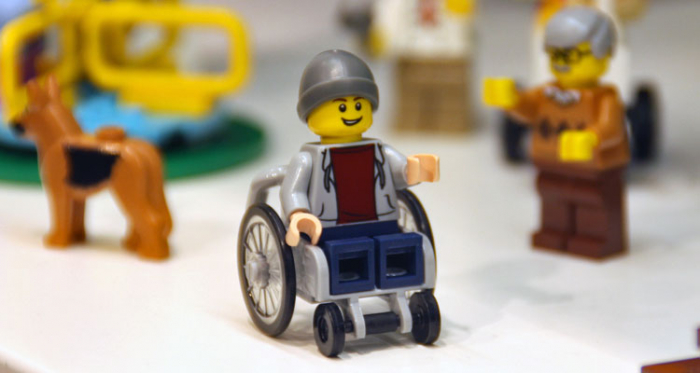Posted: February 3, 2016
Pediatric studies have championed the importance of play, with international organizations as large as the United Nations declaring play a right of every child. Children with special needs can struggle with play due to limits in mobility, dexterity, verbalization and more. As play has been tied to the ability of children to interact and engage effectively with fellow children and adults, finding effective play options you’re your child is likely a top priority for you as a parent. Finding toys your child can play with that looks similar, though, may not be something that has occurred to you but we hope it does moving forward.
Many of our audience are likely familiar with the concept and value that has been put around ensuring toys feature variety in gender and race. A variety of studies have shown that children both notice and react significantly to factors like race when it comes to toys. Thankfully the toy industry has diversified its offerings to include a wide range of race and gender on store shelves near you, but what about the special needs community? If a child feels limited when toys don’t have the same skin color, what about children who never see a toy using adaptive equipment?
Fresh off of the news that Barbie would introduce dolls with diversity in their body type, LEGO has made a significant announcement of their own. After the internet raised awareness surrounding the #ToyLikeMe cause, the popular toy maker has announced they will be releasing a new playset that features a minifigure in a wheelchair. One organization even customized an American Girl doll with a prosthetic leg so that one special young girl could have a doll that mirrored her own prosthesis. A British toy maker Makies made news with their line of dolls with disabilities, featuring dolls with hearing aids, facial birthmarks and more.
This trend toward recognizing children with special needs is a wonderful sign and covers a wide spectrum of businesses. We previously noted Hasbro’s ToyBox Tools campaign that aims to tie popular characters and games with learning exercises. Efforts to be more inclusive, rather than exclusive, with toys has built momentum, with stores like Target going as far as stopping the labeling of toys for boys or girls. The reason behind this is simple: children learn about the world around them through play. As such, the omission of special needs characters from play, one can argue, establishes an otherness to those with special needs that stigmatizes and alienates.
Our excitement about the announcement from LEGO goes beyond the idea of children playing with a minifigure in a wheelchair, though. The idea that children, with and without special needs, will now have a playscape that includes figures of varying abilities is a positive one that can only further inspires efforts like accessible playgrounds, improved funding and more. While the world will not be changed in a day simply due to this LEGO effort, we believe this announcement stands as a building block toward a better future.
For more information on the ToysLikeMe campaign, visit their Facebook Page here. For information on programs and assistance initiatives available for children with Cerebral Palsy, give us a call at (800) 692-4453 or fill out our online form today.
Photo Credit: PromoBricks






